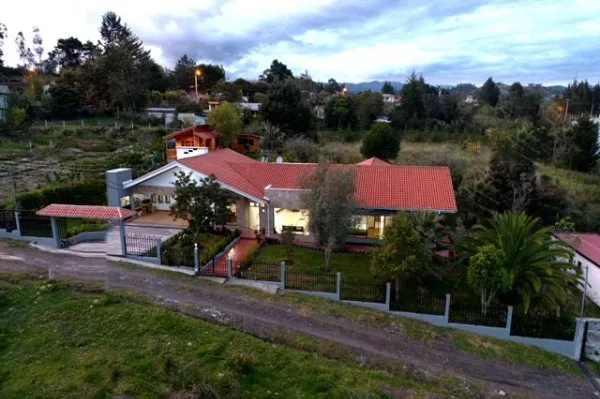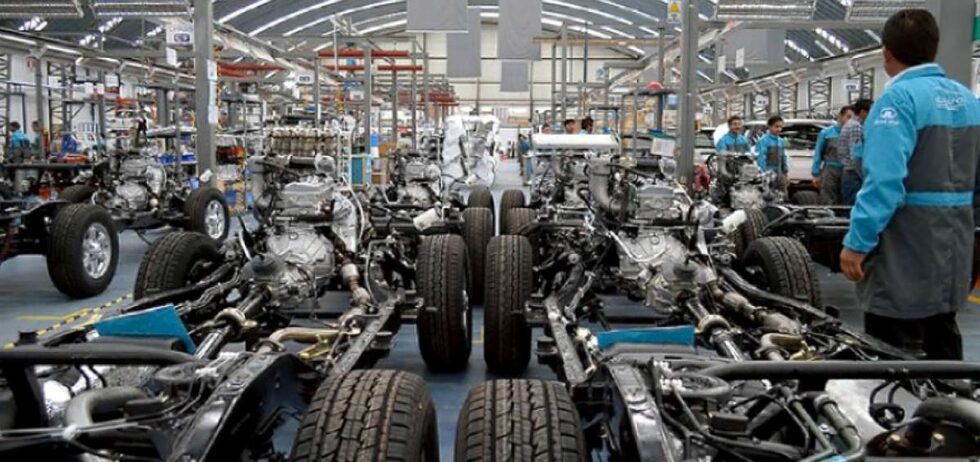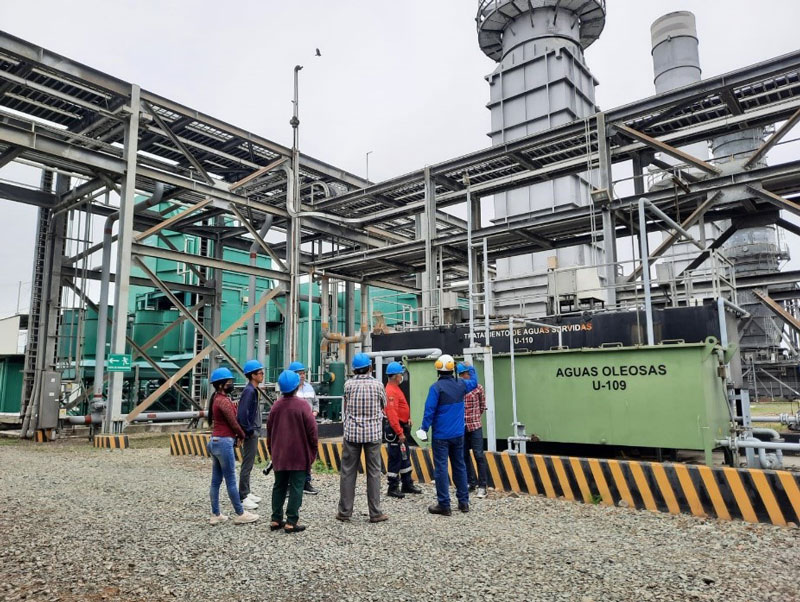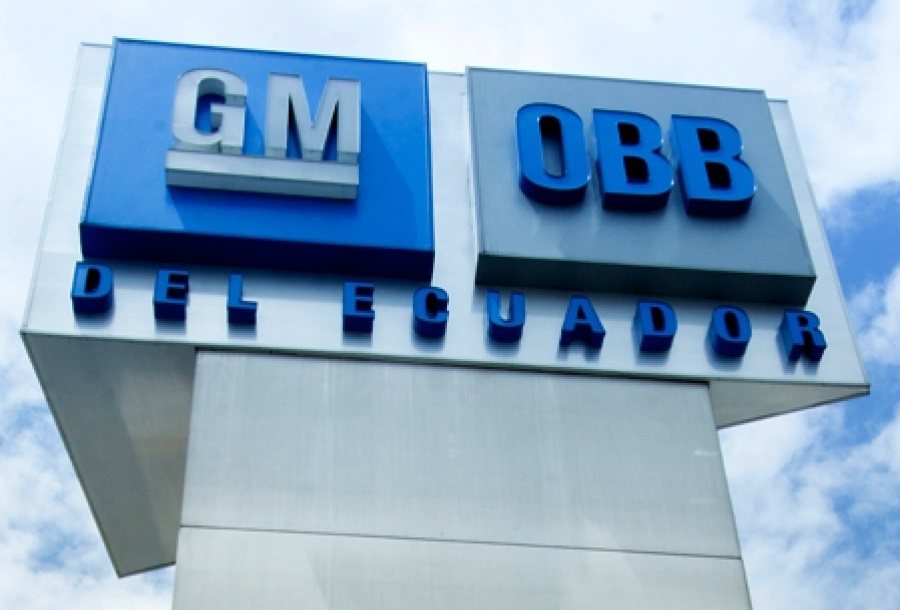Raid on the Mexican embassy will probably boost Noboa’s popularity; Was that part of the plan?
By Genevieve Glatsky
Ecuador’s decision to send police officers into the Mexican Embassy to arrest a politician who had taken refuge there inflamed tensions between two countries that were already at odds, but it may prove a political boon for the Ecuadorian  president.
president.
President Daniel Noboa has been faced with flagging approval ratings amid rising violence weeks before a referendum that could affect his prospects for reelection next year. The spat with Mexico, which suspended diplomatic relations, may be just what he needed.
The politician who was arrested, Jorge Glas, a former vice president of Ecuador, had been sentenced to prison for corruption and living at the Mexican Embassy in Quito since December. On Friday, Mexico granted him asylum, and the Ecuadorian police moved in.
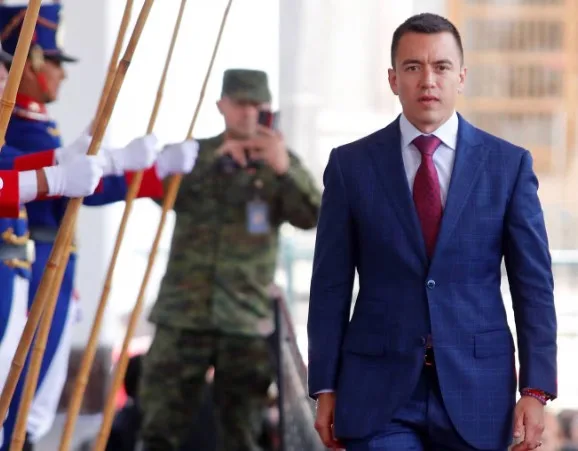
Some suggest that the raid on the Mexican embassy and the arrest of former vice president Jorge Glas were intended to boost President Daniel Noboa’s popularity ahead of the April 21 referendum and next year’s presidential election.
Noboa’s office said the arrest had gone forward because Mexico had abused the immunities and privileges granted to the diplomatic mission, but the message it sent was also in keeping with Noboa’s hard-handed approach to tackling violence and graft in Ecuador.
The 36-year-old centre-right leader came to power in November after president Guillermo Lasso, facing impeachment proceedings over accusations of embezzlement, called for early elections. Noboa is in office until May 2025, the remainder of Lasso’s term.
Noboa’s ability to show that he can restore law and order to the nation of nearly 18 million may prove crucial to his re-election, and that means tackling the country’s gangs, as well as corruption within the government that has enabled criminal groups, analysts say.
Many experts say those political aspirations appear to explain the arrest at the embassy, which signalled that the president is tough on impunity.
“He did this to change all these negative talking points that were affecting him and try to have a conversation in his favour,” said an Ecuadorian political analyst, Agustín Burbano de Lara.
Glas held various ministerial positions during the presidency of Rafael Correa, a leftist, most notably serving as vice president. In 2017, he was forced from office and sentenced to six years in prison for accepting bribes. Another bribery conviction in 2020 implicated him and Correa, and both were sentenced to eight years.
Released in 2022, Glas eventually sought asylum in Mexico, a move that strained relations between Ecuador and Mexico. Ecuador’s foreign ministry said in March that it had requested Mexico’s permission to arrest Glas.
While Noboa is still popular, polls show that his approval rating fell 11 points in recent months, from 85 per cent to 74 per cent, amid the rising violence in Ecuador.
After the coastal city of Guayaquil was overrun by gang violence in January, Noboa declared an internal conflict, an extraordinary step taken when the state has come under attack by an armed group. He deployed the country’s military, allowing soldiers to patrol the streets and prisons to tackle the soaring gang violence linked to drug trafficking.
The aggressive response initially reduced violence and brought a precarious sense of safety to places such as Guayaquil – but the stability in the city did not last. Over the Easter holiday week, there were 137 killings in Ecuador. Although far below the pre-emergency number of 220 a week, other crimes, including kidnappings and extortion have increased.
In less than two weeks, Ecuadorians will vote on a referendum to allow the government to increase security measures by making prison sentences for some crimes more severe and enshrining the increased military presence into law.
Experts say it is too soon to say if the arrest of Glas will benefit Noboa at the ballot box, but several Ecuadorians said on Sunday that they supported the action. “Mexico has treated Ecuadorians like fools, giving asylum to all these convicted people,” said Danilo Álvarez, a 41-year-old salesperson from Guayaquil, one of the country’s most violent cities.
Ecuador once famously granted asylum and protection at one of its embassies. In 2012, when Correa was president, it did so for the founder of WikiLeaks, Julian Assange, housing him at its embassy in London for seven years.
Álvarez said robbers had broken into his house a few years ago, tied his hands and feet together and held a gun to his head. It was months before he was able to sleep well again, he said.
Not all citizens, however, were in agreement with the arrest.
“This was an act of total disrespect for international law,” said Delfa Mantilla (62), a retired teacher. “It seems that it was something that president Noboa did as a product of his rich-boy ego, without empathy.”
Some worried about the effects the diplomatic dispute could have for ordinary people. Tens of thousands of Ecuadorians migrate through Mexico to the United States every year, and the two countries have faced a surge in transnational crime, with many Mexican cartels operating from Ecuador.
“Part of me thinks it’s fine, because Glas should go to jail,” said Mario Zalamar, a 34-year-old commercial engineer. But, he said, “There are thousands of Ecuadorians right now moving through Mexico on foot to migrate to the United States, and we don’t know how much this is going to affect them.”
Even if many in Ecuador support the arrest at the embassy, Noboa has likely deepened a diplomatic rift that may weaken its relations with other countries in the region.
Honduras, Brazil, Colombia and Argentina have all rallied around Mexico and criticised the arrest. And the government of Nicaragua announced it was suspending its diplomatic relationship with Ecuador, characterising the arrest as “neo-fascist political barbarity” in a statement shared by state-run media.
U. S state department spokesperson Matthew Miller said: “The United States condemns any violation of the Vienna Convention on Diplomatic Relations, and takes very seriously the obligation of host countries under international law to respect the inviolability of diplomatic missions.”
Miller called on both countries to resolve their difference.
__________________
Credit: New York Times








